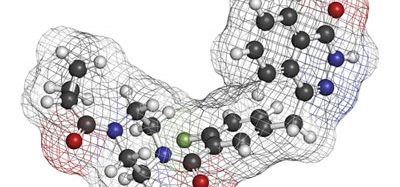Potential of small molecule therapeutics for Barth syndrome
Posted: 24 November 2023 | Drug Target Review | No comments yet
Novel findings about the tafazzin gene offers a potential new target and drug candidate for Barth syndrome.


Scientists from the University of Pittsburgh have found a possible new target and a small-molecule drug candidate for treating Barth syndrome.
Barth syndrome is a rare genetic disease that globally affects about one in every 300,000 to 400,000 babies born. Those with the condition have life-threatening issues such as weak muscles and hearts and experience debilitating fatigue and recurrent infections. It is currently incurable.
The researchers found that faulty mitochondria are a partial cause, and identified a molecule that could be targeted to possibly reverse the disease course.
Reduce preclinical failures with smarter off-target profiling
24 September 2025 | 15:00PM BST | FREE Webinar
Join this webinar to hear from Dr Emilie Desfosses as she shares insights into how in vitro and in silico methods can support more informed, human-relevant safety decisions -especially as ethical and regulatory changes continue to reshape preclinical research.
What you’ll learn:
- Approaches for prioritizing follow-up studies and refining risk mitigation strategies
- How to interpret hit profiles from binding and functional assays
- Strategies for identifying organ systems at risk based on target activity modulation
- How to use visualization tools to assess safety margins and compare compound profiles
Register Now – It’s Free!
Dr Valerian Kagan, senior author of the study and Professor of Environmental and Occupational Health at the University of Pittsburgh School of Public Health, explained that a lipid called cardiolipin, or CL, undergoes a series of transformations, known as remodelling, within the mitochondria in healthy people. However, in people with Barth syndrome, an essential gene named tafazzin (TAZ), located in the mitochondria, is mutated. CL remodelling is inhibited, and dangerous lipids accumulate without TAZ.
The team used computational models as well as in-vitro studies in mouse myoblast cells and human heart-tissue samples from people with Barth syndrome.
“We found that lyso-cardiolipin, an intermediate accumulating in mutant TAZ-deficient cells, interacts with the mitochondrial protein cytochrome c, converting it to a demon enzyme that oxidizes everything around it,” said Dr Kagan.
Excessive oxidation in TAZ-deficient cells can be prevented, as the scientists demonstrated that a compound named imidazole-substituted oleic acid, or IOA, could block the formation of those complexes and improve the motor function and endurance in a fruit fly model of Barth syndrome.
This discovery could result in ways to correct genetic tafazzin deficiency and improve mitochondrial function through small-molecule therapeutics.
This study was published in Nature Metabolism.
Related topics
Computational techniques, Drug Targets, Enzymes, In Vitro, Small Molecules
Related conditions
Barth syndrome
Related organisations
University of Pittsburgh
Related people
Dr Valerian Kagan (University of Pittsburgh)








